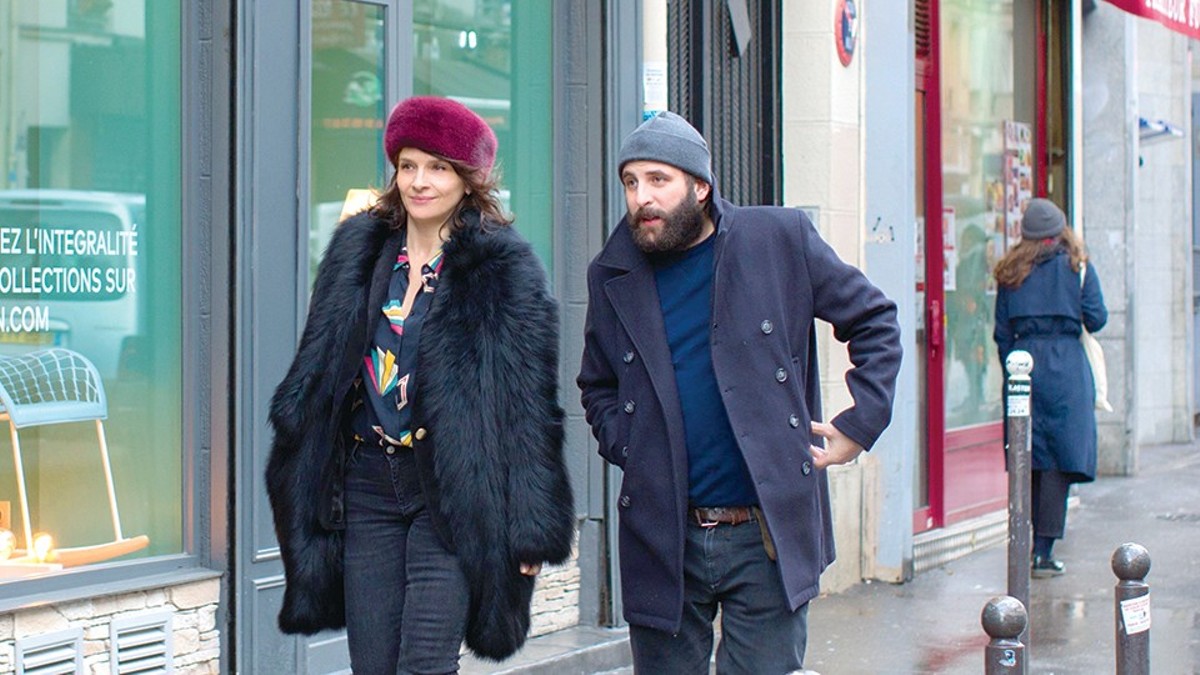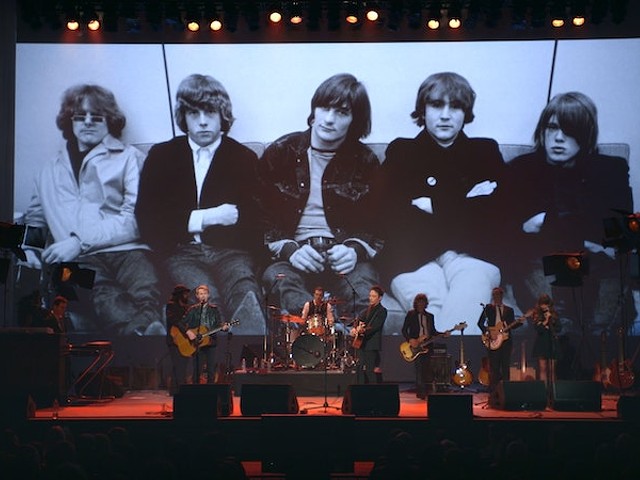Olivier Assayas, perhaps the greatest living French filmmaker as well as the least predictable, has often addressed transformation in media and the shifting nature of ideas and communication, usually with a sense of reserve bordering on cynicism. He's explored addiction, radical politics and video games, made a five-hour epic about terrorism (Carlos) as well as Bergman-esque family dramas (Summer Hours) and even set a Henry James-like ghost story in the age of text messaging (Personal Shopper), always balancing the drama with a heady flow of ideas. His latest film, Non-Fiction, continues that tradition of cerebral humanism with a remarkable timeliness. It's a comedy of manners set against the uncouth immediacy of online communication.
Alain (Guillaume Canet) is a publisher whose investors expected e-books to swallow the industry, but romantically clings to the virtues of their on-the-shelf precursors. His actress wife Selena (Juliette Binoche) has a recurring role on a cop show called Collusion — a running joke has her insisting that she plays a "crisis management expert," not a cop — but she'd rather be playing the classics. Their friend Léonard (Vincent Macaigne) is a novelist who is surprised to learn than his autobiographical tales of sexual adventures have suddenly been deemed inappropriate by the anonymous voices of the blogosphere. Léonard's wife Valerie (Nora Hamzawi) is working on a political campaign but is frustrated by the belief that integrity and idealism are perceived as a kind of performance.
In other words, they're all sophisticated and intelligent Parisians facing the unfortunate truth that sophistication and intelligence don't carry much weight in a society in which Twitter is considered, in the words of one character, "modern-day haiku," and the loudest or fastest comment outranks the considered opinion.
Taken only at the level of its simple narrative, the film could be reduced to the kind of bed-swapping romance that was once French cinema's calling card to American audiences. Selena is sleeping with Léonard (who avoids suspicion by dropping hints that the TV-star love interest of his latest book is a popular talk show host), while Alain is sleeping with Laure, the young woman guiding his company's digital transition. While they all express concern about the implications of their tangled romantic paths, they also manage to shrug them off with little regret; it's just part of their flawed human natures. (When Léonard confesses his infidelity to his wife, she reminds him that he's already revealed it in his novel.)
The twists and turns of love and marriage are ultimately mere structural devices to hold up Assayas' more pressing concern. Non-Fiction is a cautionary statement, a broadside about the limitations of "new media" and the difficulty of resisting the consumerist/conformist culture it has created. The four protagonists — most vocally, Alain — find themselves in a world where ideas have been replaced by dogmatic reactions, where superficiality is encouraged and faux outrage is the favored, automatic response. (At a book signing, audience members whose sole knowledge of his book come from what they're seen in blogs accuse Léonard of having appropriated the lives of his characters and eliminating their right to tell their own story.) The arguments tend to be a little lopsided, but the admonitory tone of Non-Fiction is well-earned.
Assayas doesn't provide a solution, but he wants to sound the alarm about the digital world's tendency toward groupthink and its relentless marketing of novelty. Faced with an online culture where anyone with a cellphone camera can become an "influencer" and the Next Big Thing has a shelf life of about seventeen hours, Alain rightfully observes that "addiction is our new default setting."
This is not to suggest that Non-Fiction is a lengthy Luddite screed or a hysterical anti-tech sermon. Assayas' films may be brimming with ideas, but they're always placed in the believable context of his characters. He's not a grumpy old crank muttering his disenchantment with social media; he's showing how real people and real social environments respond to it, sometimes with alarm, but more often with understanding and humor. (There's a brief, memorable discussion of the relative cultural weight of Michael Haneke's The White Ribbon and Star Wars: The Force Awakens.) Like most of Assayas' work, Non-Fiction is spontaneous, lively and uncannily relevant. It's an engaging and intelligent film that assumes the same of the viewer.






